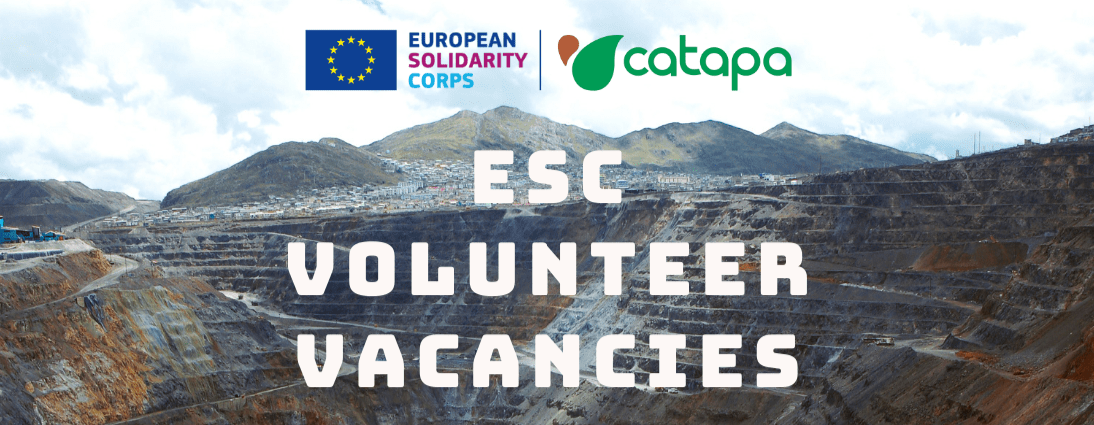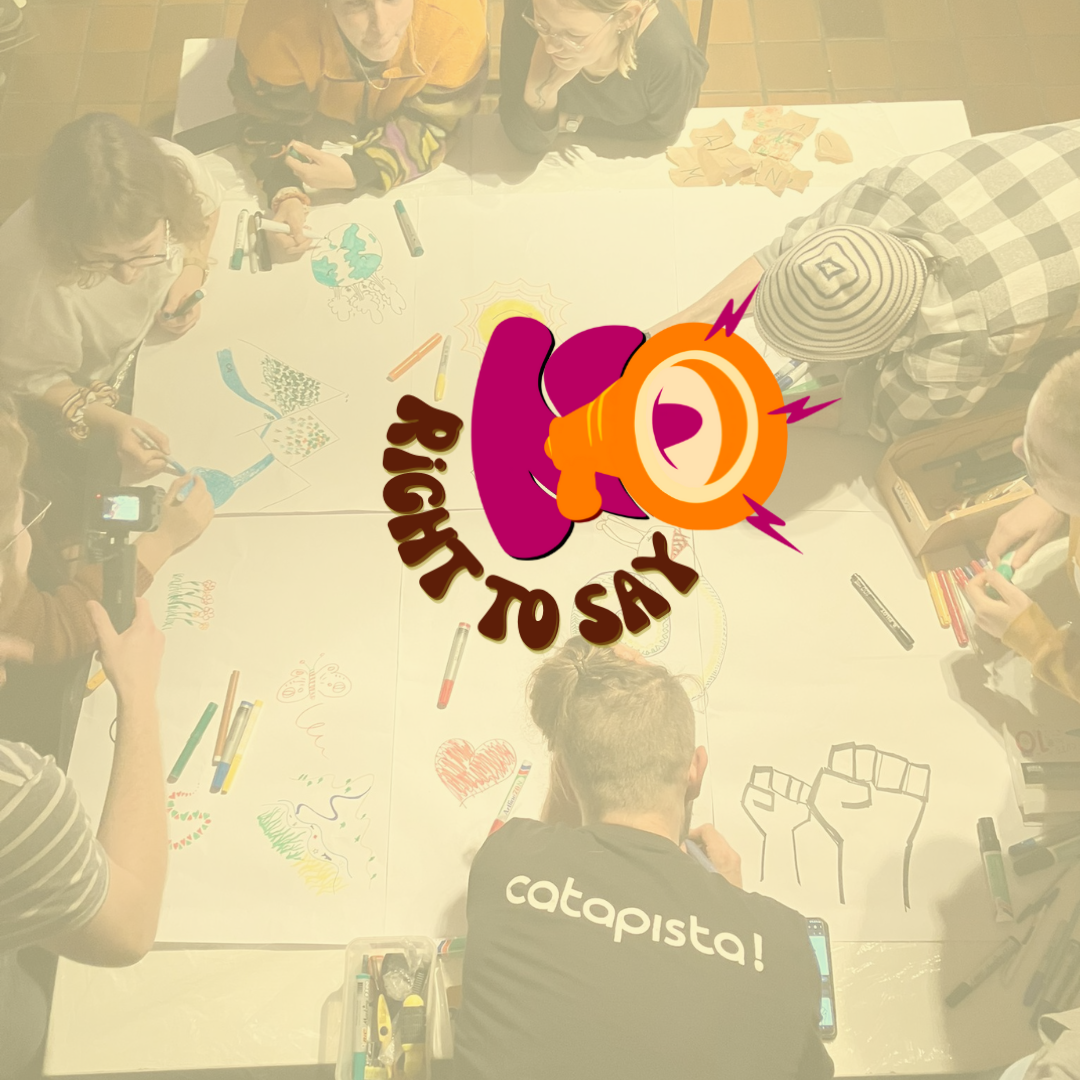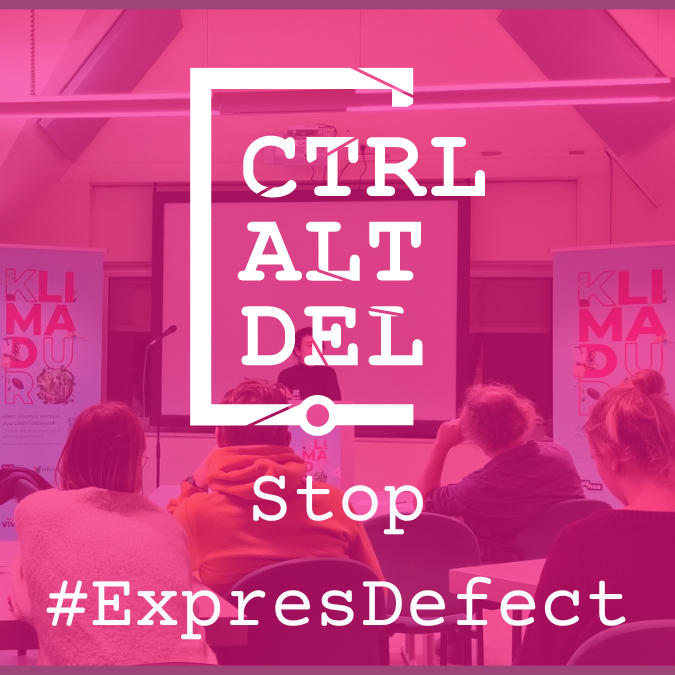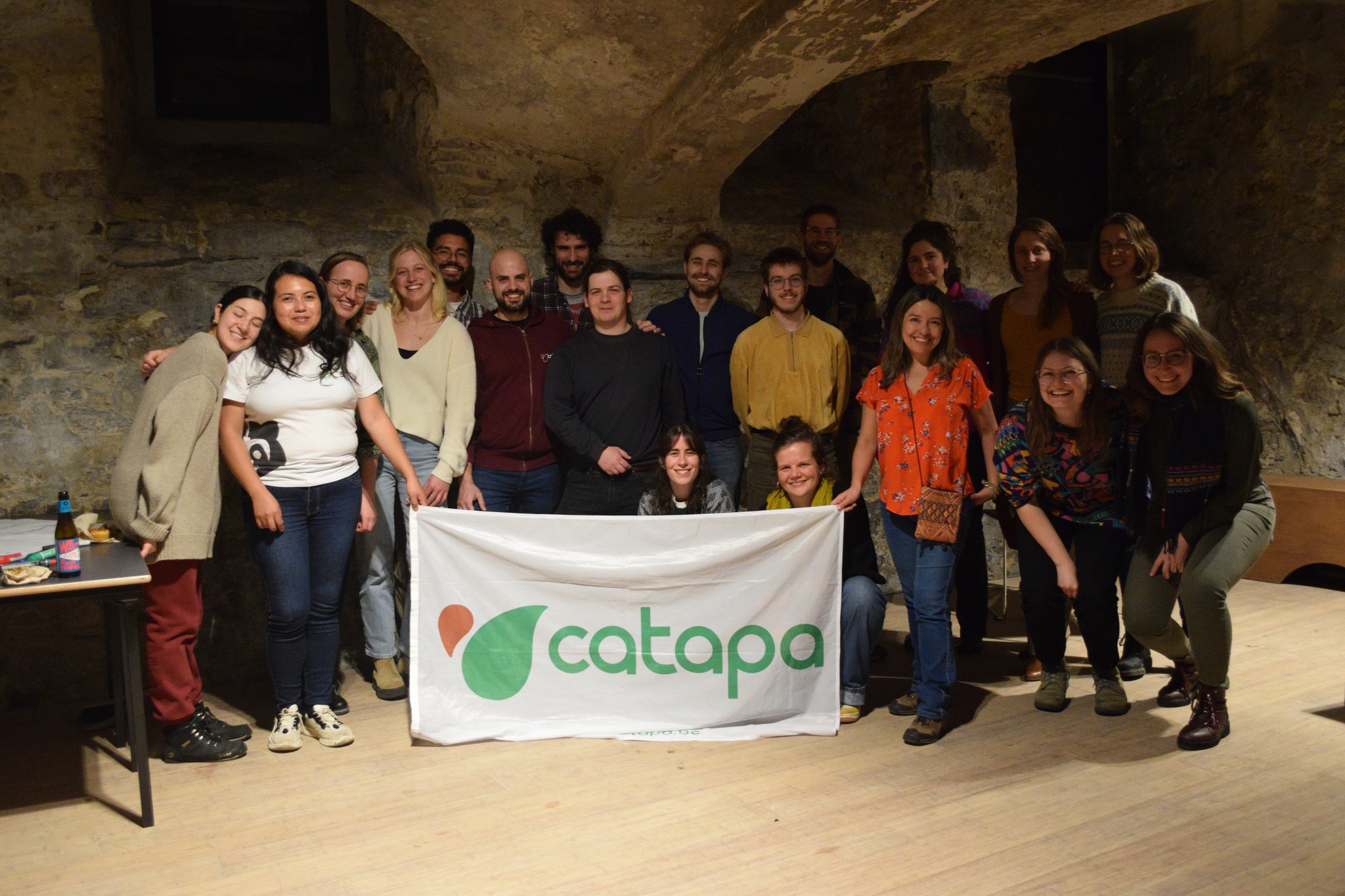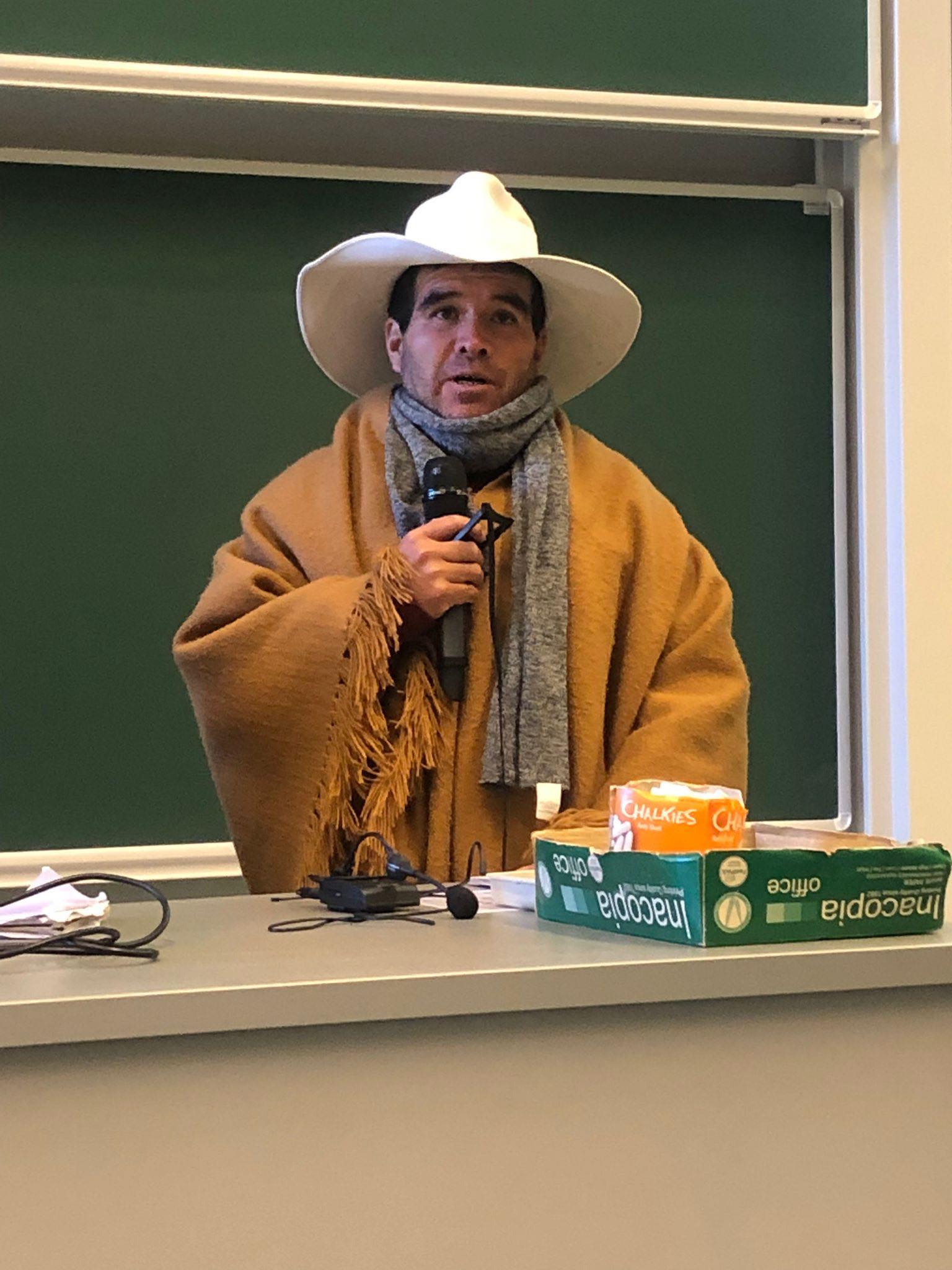Throwback: Stop #ExpresDefect Autumn Campaign
We have been in 2025 for a while, but it’s still worthwhile to look back at our CTRL ALT Delete campaign. We created unforgettable moments with Catapistas. We are pleased to share these memories here.
All Catapistas worked hard in these activities. We carried them out in the spirit of love, respect, and friendship. It was a journey of hard work, determination and responsibility to ourselves, society, and our world. So, what did we do during this period? We would like to share our campaigns with you!

12 October 2024 : Presentation during a Repair Cafe in Destelbergen
The municipality of Destelbergen organises repair cafés on the second Saturday of each month. On October 12th, CATAPA was invited to give a presentation.
Which stage in the life cycle of an electronic device do you think has the greatest impact on the environment? How many kilograms of electrical and electronic equipment waste are collected per inhabitant annually on average in the EU? What does a “refurbished” product mean? Through a quiz, Catapistas Bert and Stan started a discussion around planned obsolescence and how to fight these destructive practices implemented by manufacturers.
CATAPA has created, throughout the years, different tools in order for citizens to inform themselves on this devastating phenomenon but also spread the information/message to others. A quiz on planned obsolescence, mining and e-waste, a Stop#ExpresDefect selfie mirror, an ewaste installation, flyers, a guide ‘Tips voor duurzame elektronische toestellen’ etc. Send a mail to maud.marcial@CATAPA.be for more information.

19 October 2024: Smartphone funeral for International Repair Day
On International Repair Day, Circusplaneet, a circus school housed in a former church, set up a repair cafe. It was an excellent opportunity to provide a visible performance and draw people’s attention to the significance of the day.
Because multinational corporations, driven by profit, often produce products that fail, it’s not uncommon for your phone to slow down even after an update, or for your laptop to stop working after a few years. That is not an accident; it is known as planned obsolescence. These firms force us to buy, replace, and waste products. That is why CATAPA organized a funeral service at the church for electrical items that departed from us too early.
During the funeral of a smartphone, the Catapriest informed the public about the environmental cost of a smartphone – 62 different metals extracted from the earth, causing pollution and ecosystem destruction- and its social cost – human rights violation as the communities are often stripped of their right to say “no” to mining.
Beyond highlighting the serious consequences of the production and premature death of a smartphone, the priest encouraged the participants and operators of this repair café to join us in the fight against planned obsolescence.
Digital Week 2024 : Tips voor duurzame elektronische toestellen
The Digital Week program aims to promote and increase digital interests, skills, and accessibility related to digitalisation. This year, from November 2 to 10, a variety of interesting activities had been scheduled throughout Flanders and Brussels.
For this reason, Catapistas Stan, Alfi and Bert and Brendan created a guide on how to consciously and sustainably buy and use digital and electronic tools. For example, if people can use their electronic devices for longer, repair them when they break, or buy refurbished ones, they would generate less e-waste and reduce the need for mining.
The CTRL ALT Delete team distributed the booklets to libraries hosting Digital Week events.
We will proudly share the booklet at the next events as well! For now, Read our guide here

29 November 2024: Black Friday Action
Catapistas organised an action against the notorious day of mass consumption known as “Black Friday.” It is a day of continuous deals and discounts, ensuring the continuation of planned obsolescence. CATAPA highlighted the hidden costs of overproduction and overconsumption of electrical devices.
The broad idea of the action was decided at the 2024 Movement Days in Autumn, and it was shaped through a series of meetings and working groups. A group of Catapistas gathered in Kouter and marched through Veldstraat, Korenmark and Langemut carrying pankarts, costumes, and a shopping cart full of technological waste materials.
In fact, in order to produce always more electronic devices, entire ecosystems are being destroyed, the water is being polluted, and the rights of the local communities being violated and their voices silenced. The responsibles? Mining companies and manufacturers, driven by profit, exploit resources without reason. Our devices, often designed by these companies to have a short life, become very fast ewaste, aggravating the exploitation of resources.
Catapistas created five separate costumes. Two people were portrayed as monopoly billionaires, notably CEOs of electronic products and mining corporations, who have a lot of money but did not care about anything else. The water pollution costume was designed to highlight the environmental damage caused by the mining of raw materials needed in the manufacture of technological gadgets. The Human Rights costume depicts communities that have been badly damaged by mining activity and do not have a voice before businesses or governments. The e-waste monster costume served as a visual critique of the fetishisation of electronic product overproduction and consumption on Black Friday. A Catapista, Elisa, wore a jacket completely covered in e-waste and pushed an e-waste-filled shopping cart.
Elise, another Catapista, used a megaphone to explain why and how to avoid Black Friday, while other Catapistas handed out brochures describing the reasons and strategies for avoiding Black Friday. The brochures highlighted the negative effects of mining new raw materials on the environment and local residents, as well as the unnecessary cost of purchasing costly new items. Furthermore, it encouraged people to resist the seduction of marketing and consider the necessity of obtaining a new device. They recommended repairing as the best option but also suggested reusing or purchasing refurbished items as alternatives.
The action extended beyond the street protest, as we collaborated with the AVS Channel to provide CATAPA Black Friday Action news to a wider audience. Catapista, Elise, also interviewed the channel and explained the reason for being there. You can find the news HERE.
We would like to say thank you to everyone who contributed to such unforgettable and impactful movements!
Thank you to all the Catapistas involved!





